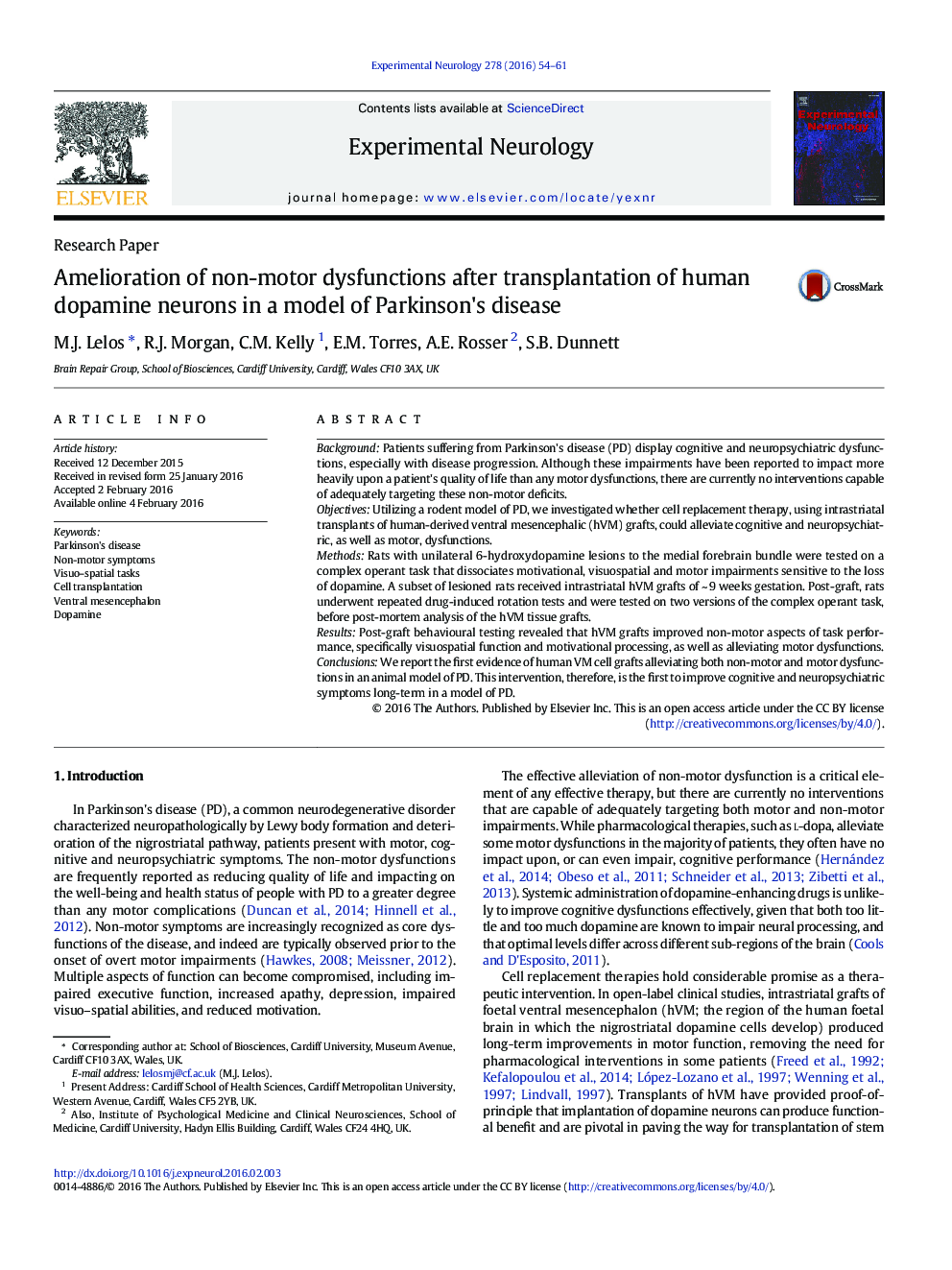| Article ID | Journal | Published Year | Pages | File Type |
|---|---|---|---|---|
| 6017071 | Experimental Neurology | 2016 | 8 Pages |
â¢Non-motor dysfunctions affect quality of life in Parkinson's disease.â¢We tested whether human-derived foetal dopamine cells could improve these deficits.â¢Human dopamine cells improved rotational bias and movement impairments in a rat model.â¢Non-motor dysfunctions, specifically visuospatial and motivational deficits, improved.â¢This is the first evidence of improved non-motor deficits from human dopamine cells.
BackgroundPatients suffering from Parkinson's disease (PD) display cognitive and neuropsychiatric dysfunctions, especially with disease progression. Although these impairments have been reported to impact more heavily upon a patient's quality of life than any motor dysfunctions, there are currently no interventions capable of adequately targeting these non-motor deficits.ObjectivesUtilizing a rodent model of PD, we investigated whether cell replacement therapy, using intrastriatal transplants of human-derived ventral mesencephalic (hVM) grafts, could alleviate cognitive and neuropsychiatric, as well as motor, dysfunctions.MethodsRats with unilateral 6-hydroxydopamine lesions to the medial forebrain bundle were tested on a complex operant task that dissociates motivational, visuospatial and motor impairments sensitive to the loss of dopamine. A subset of lesioned rats received intrastriatal hVM grafts of ~Â 9Â weeks gestation. Post-graft, rats underwent repeated drug-induced rotation tests and were tested on two versions of the complex operant task, before post-mortem analysis of the hVM tissue grafts.ResultsPost-graft behavioural testing revealed that hVM grafts improved non-motor aspects of task performance, specifically visuospatial function and motivational processing, as well as alleviating motor dysfunctions.ConclusionsWe report the first evidence of human VM cell grafts alleviating both non-motor and motor dysfunctions in an animal model of PD. This intervention, therefore, is the first to improve cognitive and neuropsychiatric symptoms long-term in a model of PD.
